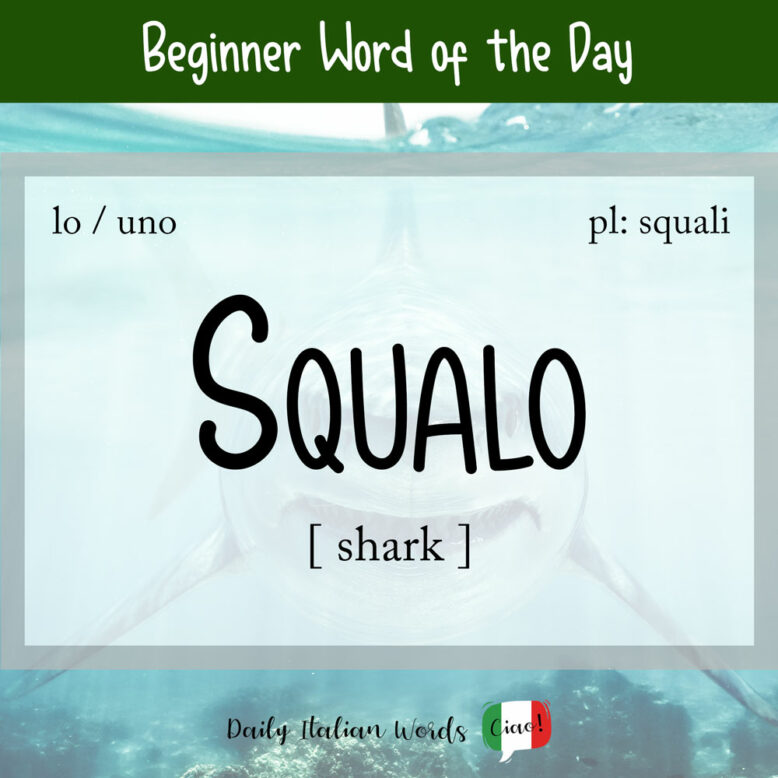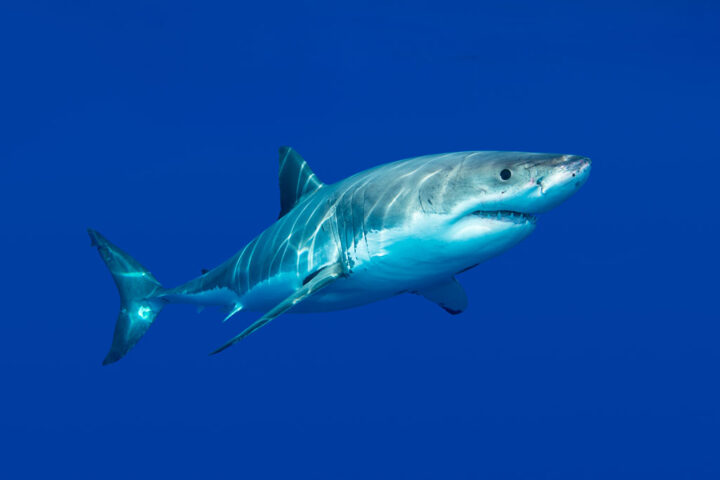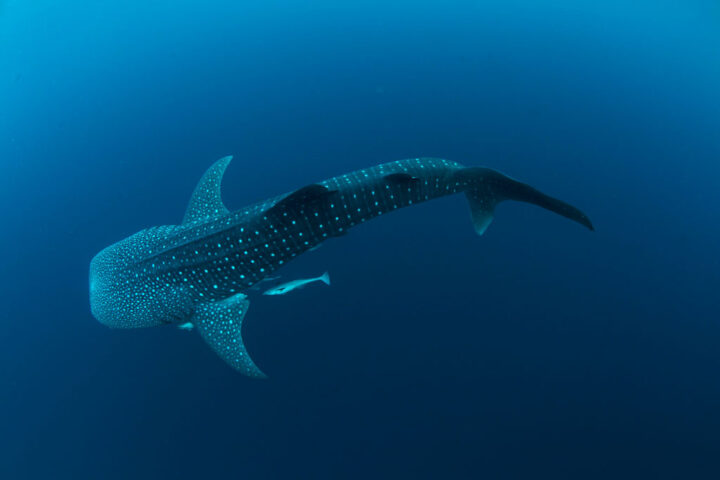The word for shark in Italian is squalo (masculine, plural: squali) – not to be confused with the adjective squallido which means run-down or sleazy! Like great deal of Italian words, it finds its origins in Latin (squalus).

Because squalo begins with s + consonant, it takes the indefinite article uno instead of un (a shark = uno squalo) and the definite article lo instead of il (the shark = lo squalo). The articles for the plural form are gli and degli (gli squali = the sharks / degli squali = some sharks).
A differenza di altri pesci, lo squalo ha uno scheletro fatto di cartilagine.
Unlike other fish, the shark has a cartilage skeleton.

Below are different kinds of sharks with which you might be familiar:
- squalo bianco = great white shark
- squalo tigre = tiger shark
- squalo leuca = bull shark
- squalo elefante = basking shark
- squalo balena = whale shark
- squalo martello = hammerhead shark
Just as in English, the word squalo can be used to refer to an aggressive and unscrupulous person who exploits others or takes full advantage of a situation even if it is at the expense of others.
Negli affari Nicola è un vero squalo.
In business matters, Nicola is a real shark.
Did you know that…?
Across the world, there are over 500 species of shark which vary in size from as small as a human hand to 12 meters long. They live in a wide variety of ocean habitats including the coral reefs (barriere coralline), the deep sea (acque profonde) and even the cold waters of the Arctic Ocean (Mar Glaciale Artico).

Heather Broster is a graduate with honours in linguistics from the University of Western Ontario. She is an aspiring polyglot, proficient in English and Italian, as well as Japanese, Welsh, and French to varying degrees of fluency. Originally from Toronto, Heather has resided in various countries, notably Italy for a period of six years. Her primary focus lies in the fields of language acquisition, education, and bilingual instruction.


